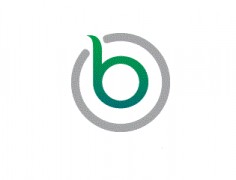The internet and email have made it very easy to share all kinds of information instantly. While a large portion of that information is accurate, there is much that is inaccurate. As far as inaccurate information goes, some of it is unintentional and some of it is purposely inaccurate. Knowing how to check out a hoax will help you to sort out what information is real, and what information is false.
Hoaxes come in many forms, but one of the most common is email. If you get an email that shares something earth-shattering, cautionary, secret, or scandalous, then the fact that it is in an email should raise the first red flag. Another email red flag is if the message has been forwarded several times and it also encourages you to forward it to everybody you know. The people who start these hoaxes understand human nature, and they know that most people will forward the right message.
“Did you know that all cars manufactured in the United States between 2003 and 2008 produce a poisonous emissions if you use the wrong kind of motor oil? There is a big cover up between the automakers and the Federal Department of Transportation. A high-ranking official…” See how easy it is to make stuff up? People start reading stuff like that and start getting worried. As the hoax goes on, they believe it more and more. Now, imagine somebody who believes the warning reading all the way to the end of the message only to see “Forward this message to everybody you know that drives a car. Their life could be at stake. Don’t let the government fat cats get away with killing the people you love.” This is how hoaxes spread.
But what if you aren’t sure if it’s a hoax? What if it is real and you could prevent somebody from getting hurt? Those are fair questions, and ones that hoaxers want you to think about. Still, there is always a chance that such messages could be true. How to check out a hoax will vary, but you should be able to track down the truth in most cases.
A visit to your favorite search engine will usually clear things up, but you still need to be careful. Remember, hoaxers are a crafty lot, and they know some people will be trying to verify the validity of their hoax. That means that some hoaxers will post deliberately misleading information to get people to believe the hoax. You also will have some unsuspecting people spreading the hoax on their blogs or other websites, and the search engines may link to those as well. There are a few websites that do nothing but try to debunk hoaxes, and they will tell you whether something is true or not.
Sometimes the best way of how to check out a hoax is to trust your gut. If you hear a little voice telling you that something sounds “off”, then take that as a sign to do a bit more investigating.
